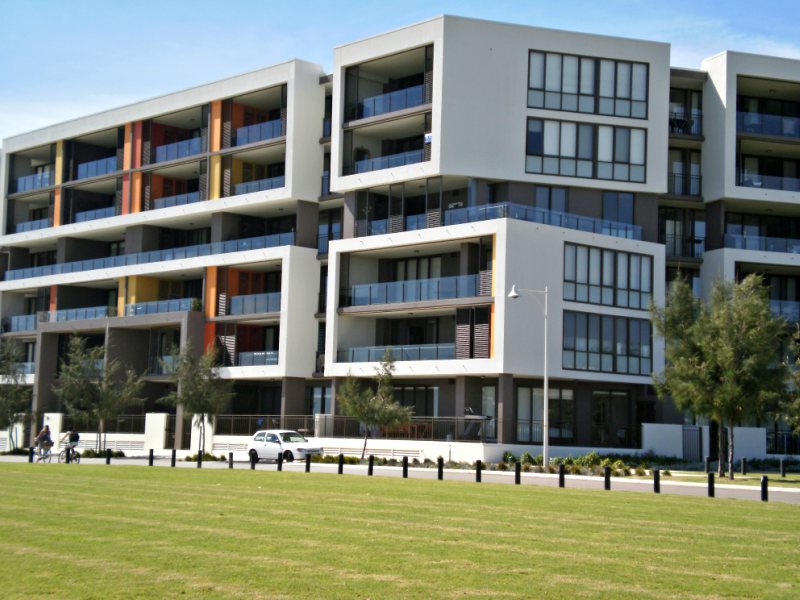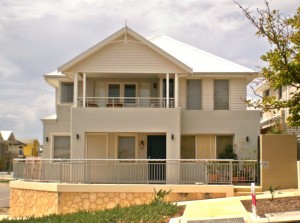
The great Australian dream of owning your own home is still alive and well, but with a number of different property types available to Perth homebuyers, what should you buy? Before you make that decision it’s important to know what the differences are.
Although not to the same extent as Sydney and Melbourne, apartment living is becoming more popular in Perth. In most cases, apartments, townhouses or units (strata titled properties) are cheaper to buy than a free standing house on a green title block.
Before going any further it’s important to understand the difference between a green title and a strata title.
Green Title
A green title refers to a property that has no shared or common areas on the land. Most green title properties in Perth have a free standing house on the block and don’t have the same restrictions as a strata titled property. For example, if you buy a green titled property, you own the land and any buildings on that land.
Strata Title
Generally speaking, if you buy an apartment for example, you only own the inside of the apartment. Everything outside of the apartment is usually referred to as “common property”, which is jointly owned by all the owners. Each owner has a share of the common property according to the unit entitlement which is listed on the strata plan. The strata plan will also indicate where the buildings are so that you know exactly what’s yours and what’s common property.
Survey Strata
A survey strata is a combination of a green title and a strata title property. A survey strata lot has distinct boundaries like a green title lot but may have a shared common driveway. An owner of a survey strata lot essentially has the same rights and obligations as a green title property. All survey strata owners pay strata fees for the common property as per a typical strata title lot.
Common Property
As an owner of a strata lot , you will be able to use the areas that are classified as “common property”. Similarly, the other strata lot owners will also be allowed to use this shared space. Common property areas may include :
- Driveways
- Garden areas
- Lifts
- Stairwells
- Foyers
- Gyms
- Swimming pools
Exclusive Use Areas
It’s also important to know if there are any areas of exclusive use on the strata lot. Exclusive use areas may include balconies or courtyards. Exclusive use areas are still part of the common property but you have exclusive use of that space. You are also responsible for maintaining it.
Buying a strata property in Perth requires an understanding of what you are actually buying. If for example you buy a townhouse or unit with a courtyard, but that courtyard is not classified as an exclusive use area for your unit, then technically all the other unit owners have the right to use that courtyard space as well.
Strata Company
With strata titled properties such as apartments, a strata company manages the common property. As an owner of a strata lot you are a “member” of the strata company. The strata company is responsible for managing and organising any repairs and maintenance issues that may arise with the common property. An appointed strata manager usually manages the strata company. However, some strata companies will self manage the common property.
Strata Fees
Each owner of an apartment or unit complex is required to pay a levy to the strata company. The levy is used to pay for insurance, as well as ongoing repairs and maintenance to the building/s, caretaking, gardening and the strata manager’s fees.
Beware that there could also be an additional levy called a sinking fund (or “maintenance” or “reserve” fund). A sinking fund is used for long term maintenance items or major expenditures and projects. These may include painting, roof replacement, replacing gutters and downpipes and general refurbishments.
Before buying an apartment make sure you are aware of what levies are payable now and in the future. A new apartment complex with a lift or swimming pool may have large levies because these items will require more maintenance, especially as they age.
By-Laws
Most strata titled complexes have their own set of by-laws. These by-laws are rules which need to be followed by anybody living in the complex (ie either owner occupier or tenants). Before buying a strata titled property it's important to understand these by-laws and how they can affect you.
Alterations to a Strata Property
If you want to alter your strata property, it must be approved by the other strata owners or the strata company. For example, if you want to put roller shutters on the windows of your unit, you will need to get approval before installing them. If you intend to add a patio to your unit or townhouse, you will need to get approval from the other owners before applying for a building permit to the local council.
With a survey strata property there is no requirement to get approval from the other owners, unless the proposed alterations breach the open space requirements of the lot.
Conclusion
If you decide to buy a strata titled property, make sure you understand what you are purchasing. Refer to the strata plan so that you understand what is common property and what is yours. You also need to be aware of any current issues that are being considered by the strata company. Ask to view the minutes of the last annual general meeting as well as the current budget. Also ask the selling agent to see the certificate of insurance.
Ultimately, the choice of what type of property you should buy will depend on your own personal and lifestyle preferences, as well as your budget. However, when you buy a property in Perth, it’s important to understand that it’s actually the value of the land that appreciates in value. In most cases the building on that land depreciates in value over time.
Generally speaking and bearing this fact in mind, the value of a green titled Perth property will appreciate more in value than a strata titled home. Also with land in the Perth metropolitan area increasingly becoming scarce, a green title property has the advantage of possibly being re-zoned for development in the future. If re-zoning does occur this may significantly increase the value of the property.
